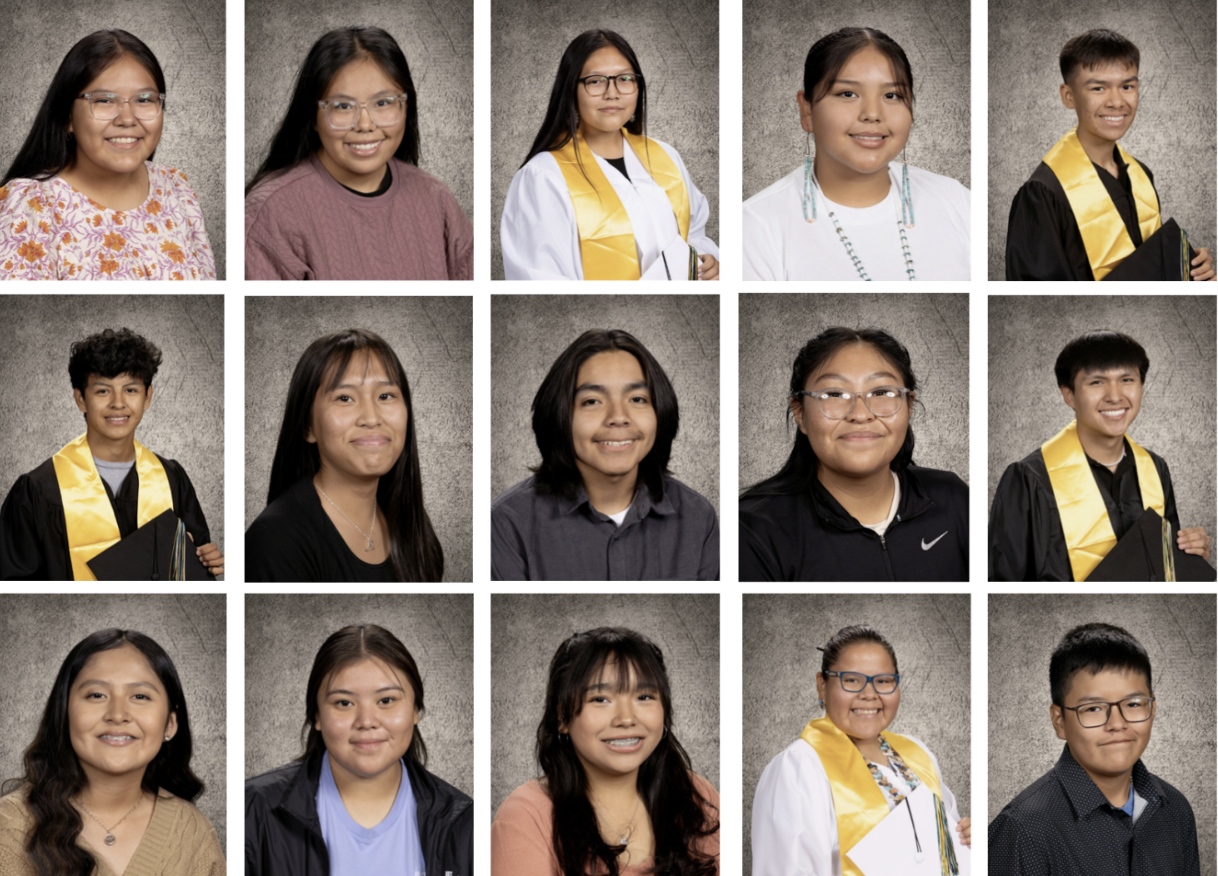
- Details
- By Native News Online Staff
The scholarships come from Eve’s Fund for Native American Health Initiatives, a 501(c)3 that sponsors community programs in injury prevention, literacy and education for at-risk Native youth.
Seven of the students are receiving the scholarship for the first time, and eight students are continuing from previous years. According to a statement by Eve’s Fund, students were selected based on demonstrated financial need, scholastic potential, and leadership skills. Each recipient’s award fully covers the school’s required academic and residential fees.
Eve’s Fund established the scholarship program in 2011 with an initial funding of $3,000.
To date, the organization has awarded $116,5000 to 72 individual Navajo Prep students, some of whom received the scholarship in each of their four years at the school. To qualify for the scholarship, students must write a short essay on “What I want to do with my education” or “How a good education will help me achieve my goals.”
“On behalf of the Navajo Prep community, I am proud to congratulate our fifteen bright, hardworking students who have been awarded the 2023-2024 Eve’s Fund Scholarship," Shawna Becenti, Head of School at Navajo Prep, said in statement. "We are grateful that Eve’s Fund has partnered with Navajo Prep for the past 13 years. During this time, Eve’s Fund has supported the vision and mission of our school by funding our students with scholarships to attend Navajo Prep. We are thankful for the continued collaboration and support of our students and communities.”
Eve’s Fund for Native American Health Initiatives was founded by the late Dr. Robert Crowell and Barbara Crowell Roy to honor the memory of their daughter, Eve Erin Crowell, who passed away in February 2005.
Eve’s Fund helps address the financial needs of talented high school students served by the only Navajo-sanctioned college-preparatory high school for Native Americans. Approximately 90% of Navajo Prep students graduate successfully, and of these, over 90% go on to matriculate at a four-year college or to serve in the military, including some accepted to the highly competitive military academies. Navajo Prep was established in 1991 by the Education Committee of the Navajo Nation Council.
This year's scholarship awardees are:
Sophomore, Keira Antonio (Pueblo Pintado, NM), Junior, Laci Antonio (Pueblo Pintado,NM), Senior
Thomacita Begay (Tuba City, AZ), Freshman, Leannabah Cly (Tuba City, AZ), Senior
Luke Damon (Albuquerque, NM), Senior
Wallen Descheeny (Klagetoh, AZ), Sophomore
Kamyra Goldtooth (Fruitland, NM), Sophomore
Jerald Hardy (Window Rock, AZ), Junior
Dominique Henderson (Little Water, NM), Senior
Orion King (Rock Point, AZ), Sophomore
Nevaeh Lewis (Torreon, NM), Sophomore
Brooke Martin (Mulholland Well, NM), Sophomore
Madilynn Mora (Round Rock, AZ), Senior
Winnie Morgan (Crownpoint, NM), and Freshman
Luke Smith (Standing Rock, NM)
More Stories Like This
Bard College Center for Indigenous Studies (CfIS) Hosts Annual Symposium With Keynote Speaker Miranda Belarde-Lewis on March 9–10American Indian College Fund Announces Spring 2026 Faculty Fellow Cohort
Navajo Nation Signs $19 Million Diné Higher Education Grant Fund Act into Law
Dr. Shelly C. Lowe to Be Inaugurated as IAIA President March 26–27
Tlingit Language Courses Expand for Students to Learn With Families At-Home
Help us defend tribal sovereignty.
At Native News Online, our mission is rooted in telling the stories that strengthen sovereignty and uplift Indigenous voices — not just at year’s end, but every single day.
Because of your generosity last year, we were able to keep our reporters on the ground in tribal communities, at national gatherings and in the halls of Congress — covering the issues that matter most to Indian Country: sovereignty, culture, education, health and economic opportunity.
That support sustained us through a tough year in 2025. Now, as we look to the year ahead, we need your help right now to ensure warrior journalism remains strong — reporting that defends tribal sovereignty, amplifies Native truth, and holds power accountable.
 The stakes couldn't be higher. Your support keeps Native voices heard, Native stories told and Native sovereignty defended.
The stakes couldn't be higher. Your support keeps Native voices heard, Native stories told and Native sovereignty defended.
Stand with Warrior Journalism today.
Levi Rickert (Potawatomi), Editor & Publisher


